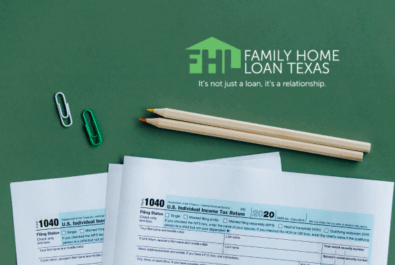 Renting an apartment or a house is how most of us spend our early adulthood. After all, not many 19-year-olds can afford a down payment on a house, and renting provides the flexibility that most young adults require. Whether you are a college student moving from one apartment to the next as roommates come and go or you have a job that requires you to travel, there are numerous reasons that make renting a great option. As you become older, however, the need for this flexibility lessens, and owning a home starts looking increasingly alluring. While everyone has unique needs — especially financially — that influence whether owning or renting a home is viable, there are certain concrete criteria that you should consider when deciding which route to take. In today’s blog, Family Home Loan Texas looks at and talks about what you need to keep in mind when figuring out if you should continue renting or opt to buy.
Renting an apartment or a house is how most of us spend our early adulthood. After all, not many 19-year-olds can afford a down payment on a house, and renting provides the flexibility that most young adults require. Whether you are a college student moving from one apartment to the next as roommates come and go or you have a job that requires you to travel, there are numerous reasons that make renting a great option. As you become older, however, the need for this flexibility lessens, and owning a home starts looking increasingly alluring. While everyone has unique needs — especially financially — that influence whether owning or renting a home is viable, there are certain concrete criteria that you should consider when deciding which route to take. In today’s blog, Family Home Loan Texas looks at and talks about what you need to keep in mind when figuring out if you should continue renting or opt to buy.
Reasons To Rent
The primary benefit of renting is flexibility. In most cases, you won’t have to sign a lease that’s longer than a year, so you will not be limited by changing life events. If your dream job becomes available in another state or if you want to move in with your significant other, you have the ability to do so without having to go through the home-selling process. Many of us, especially younger adults, are still figuring out our life goals, so being able to follow new opportunities is immensely valuable and can provide major benefits.
In addition to being flexible, renting also means you have far fewer responsibilities than you do as a homeowner. If something in your rental breaks, you are not on the hook to fix it; rather, your landlord or management company will repair it — saving you time, headaches, and money. In general, renting saves you money in the short term. While you likely will have to pay application fees and security deposits, beyond that, you will just have to pay rent costs and utilities. When you do not have a significant nest egg saved up, renting is frequently the best option.
Downsides Of Renting
Though renting does afford significant flexibility, this can quickly turn into insecurity. Landlords can sell the property at pretty much any time they desire, which requires you to move out and find a new home without much notice. This is especially tough when you’ve spent time turning your apartment or house into a comfy place that you consider your home. Moreover, the ability to fully decorate and customize your place is limited. Many landlords won’t allow you to make changes beyond hanging up art or small shelves. Even in some cases, they will charge you for repairing these holes once you move out.
Even if you are allowed to make improvements to your rental unit, you won’t be benefiting yourself down the road. Rather, you will be increasing your landlord’s equity rather than your own. This is made worse by the fact that in many places —- North Texas, in particular — monthly rental payments are pretty close to mortgage costs. Unfortunately, despite this high price, you are not building any equity at all. If you rent for long enough, you will probably reach a point where you could have paid off an entire mortgage in roughly the same duration. Our calculator can help you determine this.
To further complicate matters, it is becoming increasingly common for management companies to require renters to make (and prove) over three times their monthly rent. In some cases, everyone who will be living in your unit will have to make this amount, which adds up to a massive sum. If you — or you and your partner — had this amount of income, buying a home would clearly be the preferable option.
Why You Should Buy
When you own a home it is truly yours. After you sign the closing documents and make your down payment, you can do anything you want with it. While owning a home doesn’t afford the same flexibility that renting does, it has numerous advantages. Perhaps the biggest is building equity in your home. Every mortgage payment you make increases it, which means that whenever you want to sell, you will gain more money from the sale. Moreover, as your house appreciates in value — whether through increasing housing prices or through renovations — the more you will profit. As noted above, if you make improvements to an apartment, you will not see any money when your landlord sells the property. Therefore, owning a house can be a great long-term investment.
Moreover, you can rest easy knowing that your monthly costs won’t shoot up like they can when you renew a lease. With a fixed-rate mortgage, you will know exactly how much you have to pay for the duration of the loan. Additionally, should national interest rates decrease, you can always refinance your mortgage to take advantage of this.
Downsides Of Buying
The primary downside of buying that affects most people is the upfront cost of the down payment. Unless you have a significant amount of money saved, reaching the down payment price can be difficult. While you won’t have to put 20% down as many people expect, you will still likely need to pay about 3.5% of the total cost. With that said there are certain programs like VA Loans that can allow qualified people to purchase a house with no money down. Similarly, when you own a house you are responsible for all repair costs; you can’t just call a landlord and have them schedule and pay for necessary repairs.
You will also have a trickier time moving should a new opportunity arise elsewhere. Yes, you can sell your home but that can be an arduous process, especially when you are looking to purchase one in a new place, as well. Ultimately, everyone has different needs and there is not a one-size-fits-all answer for determining if you should buy a house. For most people, it boils down to how much they can afford at the moment, but with increasing rental prices, the line between the two is becoming increasingly blurry.
Contact Us For Additional Advice About Renting Or Buying
Family Home Loan Texas was founded by loan originator and long-time mortgage professional Rob Bramer. Rob has helped clients secure the loans they need both locally and nationally and can help you get the loan you need to live life on your terms. Call 1-800-990-LEND (5363) to speak with Rob about your home loan needs, including conventional mortgages and refinancing.





